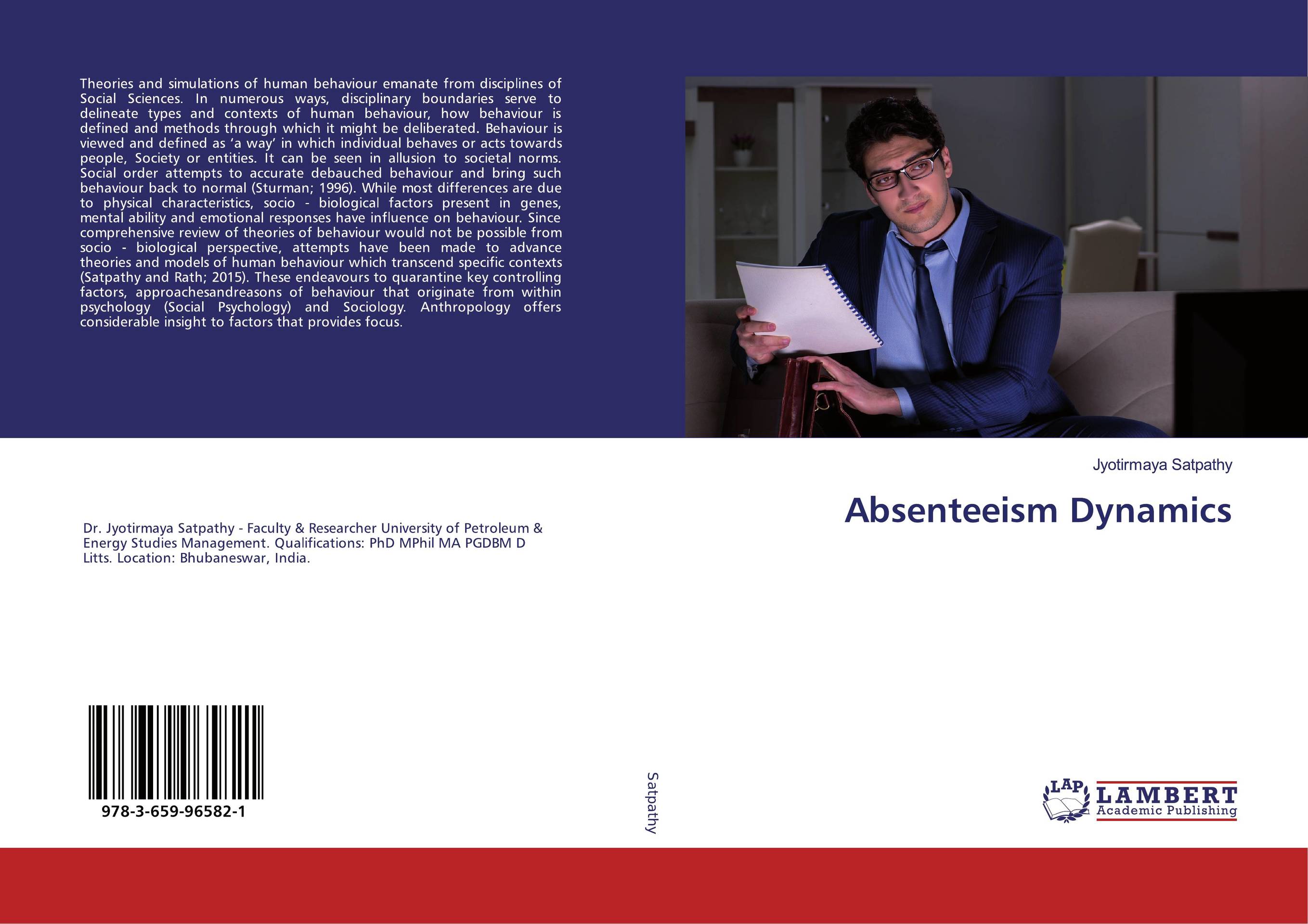| Поиск по каталогу |
|
(строгое соответствие)
|
- Профессиональная
- Научно-популярная
- Художественная
- Публицистика
- Детская
- Искусство
- Хобби, семья, дом
- Спорт
- Путеводители
- Блокноты, тетради, открытки
Absenteeism Dynamics.

В наличии
| Местонахождение: Алматы | Состояние экземпляра: новый |

Бумажная
версия
версия
Автор: Jyotirmaya Satpathy
ISBN: 9783659965821
Год издания: 2019
Формат книги: 60×90/16 (145×215 мм)
Количество страниц: 256
Издательство: LAP LAMBERT Academic Publishing
Цена: 51495 тг
Положить в корзину
| Способы доставки в город Алматы * комплектация (срок до отгрузки) не более 2 рабочих дней |
| Самовывоз из города Алматы (пункты самовывоза партнёра CDEK) |
| Курьерская доставка CDEK из города Москва |
| Доставка Почтой России из города Москва |
Аннотация: Theories and simulations of human behaviour emanate from disciplines of Social Sciences. In numerous ways, disciplinary boundaries serve to delineate types and contexts of human behaviour, how behaviour is defined and methods through which it might be deliberated. Behaviour is viewed and defined as ‘a way’ in which individual behaves or acts towards people, Society or entities. It can be seen in allusion to societal norms. Social order attempts to accurate debauched behaviour and bring such behaviour back to normal (Sturman; 1996). While most differences are due to physical characteristics, socio - biological factors present in genes, mental ability and emotional responses have influence on behaviour. Since comprehensive review of theories of behaviour would not be possible from socio - biological perspective, attempts have been made to advance theories and models of human behaviour which transcend specific contexts (Satpathy and Rath; 2015). These endeavours to quarantine key controlling factors, approachesandreasons of behaviour that originate from within psychology (Social Psychology) and Sociology. Anthropology offers considerable insight to factors that provides focus.
Ключевые слова: Individual, thinking, Entity, group mind, General failure, Sociologists, evolutionary perspective



